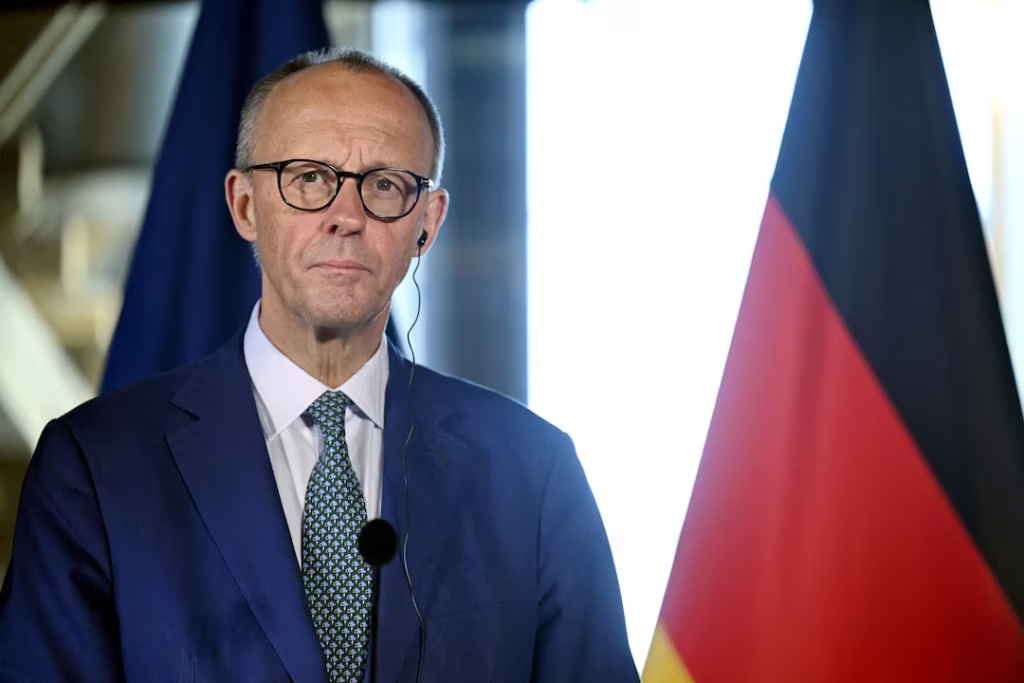BERLIN — In a major diplomatic shift, Germany’s top leaders threatened to take action against Israel over its military campaign in Gaza, signaling the possible suspension of weapons exports amid growing concern over alleged violations of international humanitarian law.

Foreign Minister Johann Wadephul on Tuesday declared that Germany would not export weapons that could be used in breaches of humanitarian norms. He further cautioned that Berlin’s historic support for Israel—rooted in the legacy of the Holocaust—must not be “instrumentalised” in the context of the ongoing war in Gaza.
Speaking to WDR, Wadephul described the situation in Gaza as “unbearable”, citing widespread airstrikes and severe shortages of food and medicine. “Where we see dangers of harm, we will of course intervene and certainly not supply weapons so that there will be further harm,” he said. Wadephul also noted that no new arms orders to Israel were currently under consideration.
The remarks were echoed by Chancellor Friedrich Merz, who said from Finland that Israel’s continued strikes on Gaza were “no longer comprehensible” and not justified under the stated goal of defeating Hamas. Merz stopped short of announcing concrete measures but acknowledged that Germany was at a point where it needed to “think very carefully” about next steps.
While not a full rupture, the escalating criticism marks Germany’s most severe rebuke of Israel since the war began in October 2023, following Hamas’s surprise attacks that left around 1,200 people dead. At the time, Germany joined the U.S. in staunchly defending Israel’s right to respond. But the shift in tone reflects both a broader reevaluation within the European Union and mounting public pressure at home.
A recent Civey poll for Tagesspiegel showed 51% of Germans oppose arms exports to Israel, while a Bertelsmann Foundation survey found that just 36% of Germans now view Israel positively, down sharply from 46% in 2021. Only a quarter of Germans continue to recognize the Staatsräson—Germany’s post-Holocaust policy of special responsibility toward Israel—as a guiding principle, compared to 64% of Israelis who still believe Germany holds such an obligation.
The growing humanitarian toll in Gaza—where more than 2 million people face famine conditions and repeated bombardment—has also triggered action among Germany’s coalition partners. Social Democrats have demanded a full arms embargo, arguing that continued exports risk making Berlin complicit in alleged war crimes.
Merz, who campaigned on strengthening ties with Israel and vowed to host Prime Minister Benjamin Netanyahu despite a potential International Criminal Court arrest warrant, now faces increasing diplomatic and domestic scrutiny. His office has remained silent on whether future arms shipments are under review, citing national security council confidentiality.
Meanwhile, Israel’s ambassador to Berlin, Ron Prosor, acknowledged the criticism but offered no policy shift. “When Friedrich Merz raises this criticism of Israel, we listen very carefully because he is a friend,” he told ZDF.
Germany’s warning follows similar calls for “concrete actions” from Britain, France, and Canada, and comes amid EU efforts to reassess its Israel policy. The chancellor is expected to speak directly with Netanyahu in the coming days.



